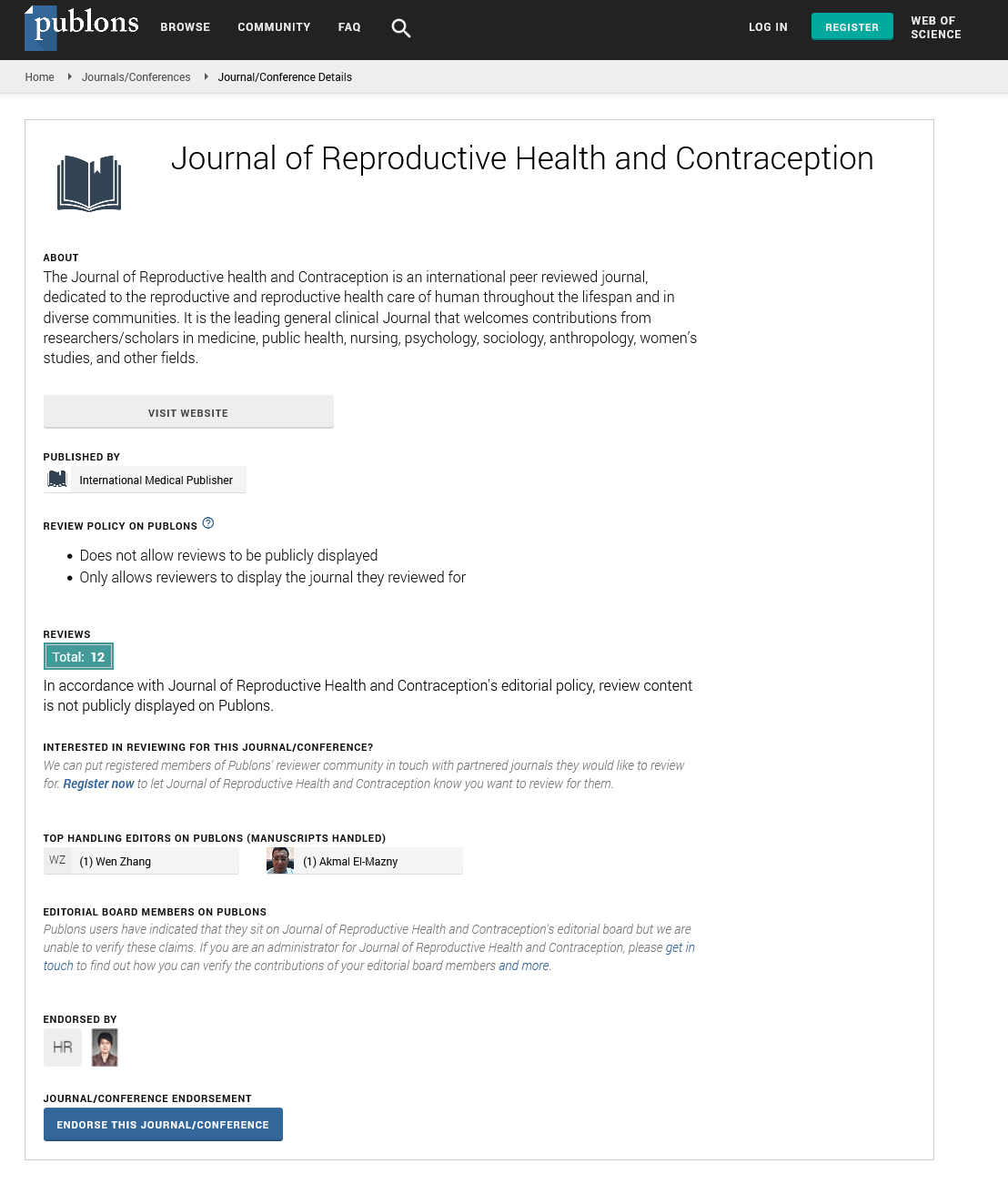ISSN : 2471-9749
Journal of Reproductive Health and Contraception
Family planning as a determining factor in preference to traditional birth attendants (TBAS) for Somali expectant mothers in Dadaab refugee camps, Kenya
International Congress on Midwifery and Maternal health - May Webinar
May 19-20, 2021 | Webinar
Newton Kahumbi Maina
Kenyatta University, Kenya
ScientificTracks Abstracts: J Contracept Stud
Abstract
Statement of Problem: Family planning is a determining factor in the maternal health care choices for Somali pregnant mothers in Dadaab Refugee Camps. Research has revealed that during delivery, the Somali mothers prefer the services of Traditional Birth Attendants (TBAs) to those of midwives in hospitals. The preference for TBAs is borne of the belief that when women deliver in hospitals, they could be subjected to family planning against their will. The contention is that Islam and socio-cultural practices of the Somali community do not advocate family planning. The purpose of this paper is to discuss Islam’s position on family planning with in order to explain the response of the Somalis of Dadaab refugee camps on family planning. Methodology & Theoretical orientation: The paper is derived from a qualitative study that involved snowball sampling, in-depth interviews and focus group discussions (FGDs). These methods brought out family planning as a determining factor in the mother’s choice of TBAs as opposed to hospital midwives in Dadaab Refugee camps. Findings: Any discourse on Islam and family planning offers two perspectives: proponents of family planning and opponents of family planning. Both perspectives use the texts of the Qur’an and Hadith (traditions) and different interpretations to justify and support their respective positions and opinions. Through primary and secondary sources, the paper interrogates both perspectives of family planning in Islam. Conclusion & Significance: It is concluded that the Somalis’ belief on family planning is informed by the two perspectives of family planning but the opponents’ perspective holds sway. This determines the preference for TBAs for fear that mothers who deliver in hospitals could be subjected to family planning contraceptives. Recommendation: there is need to educate the community further on Islamic teachings on family planning; and more sensitization conducted on the benefits of child spacing.
Biography
Newton Kahumbi Maina (PhD) is a Senior Lecturer in Islamic Studies in the Department of Philosophy & Religious Studies, Kenyatta University. He has published widely in the area of Islamic Studies, Gender and Islam and Christian and Muslim relations. He is currently a Co-investigator in Digital Innovation & Maternal Health for Migrant Mothers Network, a research project partnership of researchers of Kenyatta University (Kenya) and Newcastle University (UK). He has also conducted independent researches on: “Women Religious Leaders as Actors in Ethnic Conflict Management and Resolution in Kenya” (2004); “The Influence of the Interpretations of Islam on Girl's Access to Secondary School Education in Kenya"(2003); "The Impact of Islam on Women's Political Mobilization in Kenya" (1999); the Contribution of Religious Networks to Female Education in Kenya (1994) and “Muslim Education in Kenya with Special Reference to Madrasa System "(1993).
Google Scholar citation report
Citations : 201
Journal of Reproductive Health and Contraception received 201 citations as per Google Scholar report
Journal of Reproductive Health and Contraception peer review process verified at publons
Abstracted/Indexed in
- Google Scholar
- China National Knowledge Infrastructure (CNKI)
- WorldCat
- Publons
Open Access Journals
- Aquaculture & Veterinary Science
- Chemistry & Chemical Sciences
- Clinical Sciences
- Engineering
- General Science
- Genetics & Molecular Biology
- Health Care & Nursing
- Immunology & Microbiology
- Materials Science
- Mathematics & Physics
- Medical Sciences
- Neurology & Psychiatry
- Oncology & Cancer Science
- Pharmaceutical Sciences
